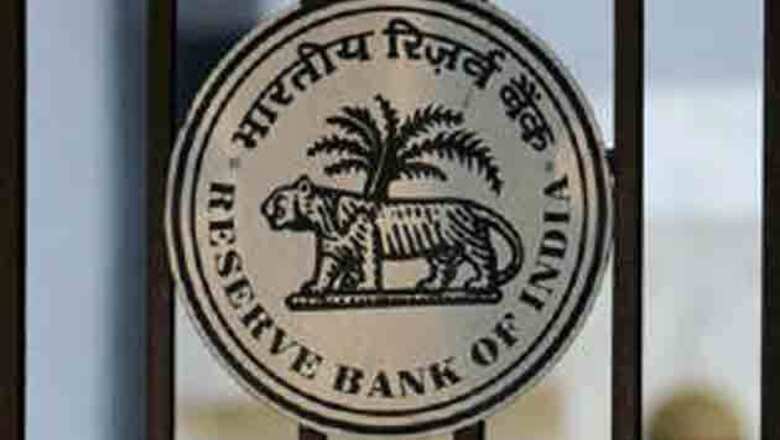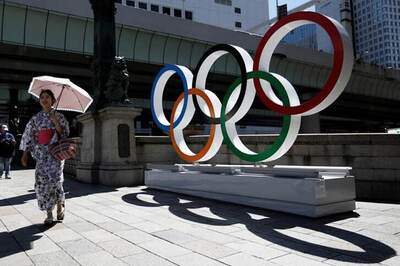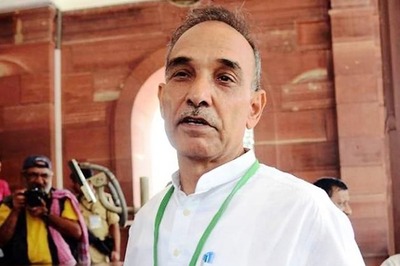
views
Mumbai: The Reserve Bank of India is expected to keep interest rates on hold on Tuesday despite government pressure for a cut, sticking to its guidance that it will not ease monetary policy before early next year as cooling inflation is still too high for comfort. The RBI has kept its key borrowing rate at 8 per cent since April, defying calls from business and politicians to do more to cushion the economy from a downturn that has dragged it towards its slowest growth rate in a decade.
Despite signs that price pressures are moderating, the RBI is expected to wait for more clarity on the inflation trajectory before resuming rate cuts, in contrast to other big emerging market central banks in China, Brazil and South Korea that have been more aggressive in easing policy to stimulate growth.
Instead, the RBI may deliver a cut in the cash reserve ratio, a tool it has been using to manage a cash deficit and prod banks to loosen lending rates. "They might want to lag behind rather than do a rate cut now on expectation of softer inflation," said Siddhartha Sanyal, India economist at Barclays Capital in Mumbai. "If they cut rates now then lot of open questions will arise because they had revised their inflation trajectory upwards as late as in October. That will hurt their credibility."
The wholesale price index, India's main gauge for inflation, has remained above 7 per cent for the past three years, a key reason why the RBI has refrained from lowering policy rates since April's 50-basis point cut. In doing so, the central bank has repeatedly resisted pressure from the finance ministry to cut rates to prop up an economy that has posted GDP growth below 6 per cent for the past three quarters and is on track for its weakest annual performance in a decade in the fiscal year ending March.
A Reuters poll last week showed 37 of 41 expect the RBI to hold the policy repo rate at 8 percent at its mid-quarter monetary policy review. Respondents were split over a cut in the CRR, with 16 of 33 expecting the RBI to reduce the ratio of deposits that lenders must keep with the central bank by 25 or 50 basis points.
RBI Governor Duvvuri Subbarao had raised the inflation projection in October to 7.5 per cent for the fiscal year from 7 per cent, and in unusually explicit guidance said there was "reasonable likelihood" of further policy easing in the March quarter. Headline inflation, which data on Friday showed eased unexpectedly to a 10-month low of 7.24 per cent in November from a year earlier, is expected to rise close to 8 percent in December and subsequently cool from January.
"There is always a justification of cutting rates now because we all know the trajectory of growth and inflation. But the RBI may not want to be seen as cutting rates when inflation will go up before dipping," said Saugata Bhattacharya, chief economist at Axis Bank.
However, November's slower-than-estimated inflation raised some expectations of a rate cut as early as Tuesday. "With inflation prints for October and November coming lower than its forecasts, there is a strong case for the RBI to act sooner than its guidance," Goldman Sachs said in a research note. The investment firm now expects the RBI to cut rates on Tuesday compared with its previous views of no rate cut.
Government bonds that follow the central bank's policy moves closely would rally, with the 10-year benchmark bond yield expected to soften by around 10 basis points if the RBI cuts the repo rate. The Sensex has fallen in six out of the previous seven sessions amid caution ahead of the RBI review.
The Congress-led minority government, faced with threats of sovereign rating downgrades due to a widening fiscal deficit, is struggling to pass key reform bills allowing greater access to foreign investors in the retail, banking and insurance sectors. Standard & Poor's last week issued another warning to India's credit rating, saying a wide fiscal deficit and a heavy debt burden were the most significant rating constraints.
India's fiscal deficit is the widest among major emerging nations due to high subsidies on fuel, food and fertilisers. The government aims to bring down the fiscal deficit to 5.3 per cent of GDP in 2012/13 from 5.8 per cent in 2011/12, but most analysts consider this a tall order given a slowdown in revenues.




















Comments
0 comment